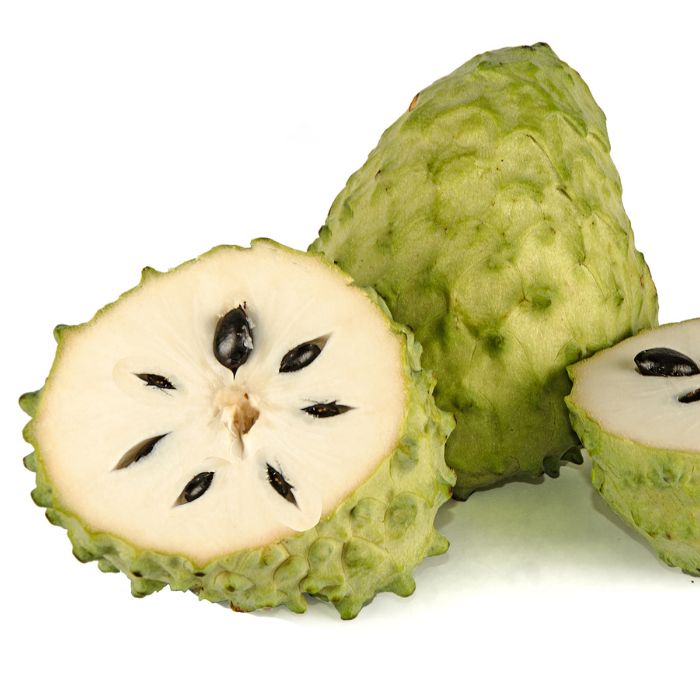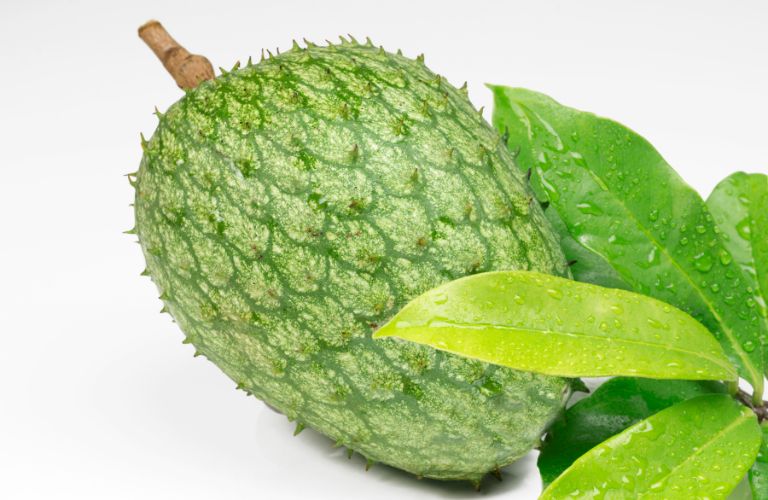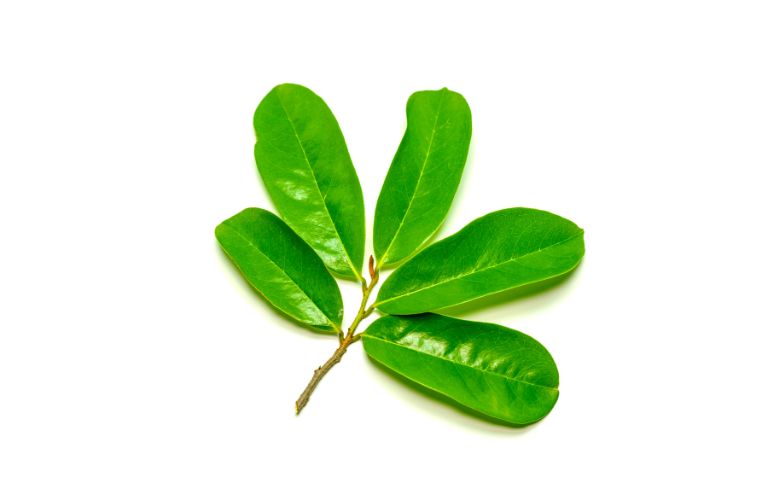Discover The 15 Health Benefits Of Soursop Leaves – Uses & Side Effects
Soursop is a fruit tree that is native to South America but has since been cultivated in many other parts of the world, including Southeast Asia, Africa, and the Caribbean. Soursop leaves have been used for centuries in traditional medicine for their numerous health benefits. In this article, we’ll explore the 15 health benefits of soursop leaves tea, as well as how to prepare them for consumption and possible side effects.
I. Introduction To The 15 health benefits of soursop leaves
Soursop leaves are the leaves of the soursop fruit tree and have been used for medicinal purposes for centuries. In many cultures, soursop leaves are believed to have numerous health benefits and have been used to treat a variety of ailments.
A. Overview of soursop leaves
Soursop leaves come from the soursop fruit tree, also known as Annona muricata. The tree produces a green, spiny fruit with a sweet and sour flavor, but it is the leaves that are used for their medicinal properties.

B. Brief history of soursop leaves
Soursop leaves have been used for centuries in traditional medicine to treat a variety of ailments. The fruit and leaves were used by the indigenous people of South America to treat fevers, dysentery, and liver problems. In Africa, soursop leaves were used to treat hypertension and malaria.
C. Importance of soursop leaves in traditional medicine
Soursop leaves are an important component of traditional medicine in many cultures. They are believed to have numerous benefits to our health and have been used to treat a variety of ailments for centuries.
II. Nutritional Content of Soursop Leaves
Soursop leaves are packed with vitamins and minerals that are essential for good health. Here are some of the key nutrients found in soursop leaves:
A. Vitamins
- Vitamin C: Soursop leaves are a great source of vitamin C, which is important for boosting the immune system and preventing infections.
- Vitamin B6: Vitamin B6 is essential for the proper functioning of the nervous system and helps to regulate mood.
- Vitamin B1: Also known as thiamin, vitamin B1 is important for the metabolism of carbohydrates and helps to maintain healthy skin, hair, and nails.
B. Minerals
- Calcium: Calcium is essential for strong bones and teeth and also plays a role in muscle function and blood clotting.
- Potassium: Potassium is important for maintaining healthy blood pressure and helps to regulate heart rhythm.
- Magnesium: Magnesium is important for the proper functioning of the nervous system and helps to regulate muscle function and blood sugar levels.
III. Medicinal Properties of Soursop Leaves

Soursop leaves are believed to have numerous medicinal properties, including:
A. Antioxidant Properties
Soursop leaves contain antioxidants that help to protect the body from damage caused by free radicals.
B. Anti-inflammatory Properties
Chronic inflammation is linked to many chronic diseases, including cancer, heart disease, and diabetes. Soursop contains several compounds that have been shown to possess anti-inflammatory properties, such as quercetin and kaempferol.
C. Anti-cancer Properties
Some studies suggest that soursop may have anticancer properties, although more research is needed to confirm these findings. The fruit contains compounds like acetogenins and alkaloids, which have been shown to inhibit the growth of cancer cells in test-tube and animal studies.
IV. Health Benefits of Soursop Leaves

Soursop leaves have numerous health benefits, including:
A. Boosts Immune System
Soursop is rich in vitamin C and other antioxidants, which can help strengthen your immune system and protect against infections. A review of studies published in the Journal of Herbal Medicine found that soursop had immunomodulatory effects that could enhance the body’s defense mechanisms.
B. Lowers Blood Pressure
Soursop may also be beneficial for people with diabetes, as it can help lower blood sugar levels. A study published in the Journal of Ethnopharmacology found that soursop extracts improved glucose tolerance in diabetic rats.
C. Improves Digestion
Soursop leaves have been used for centuries to improve digestion and treat stomach ailments such as diarrhea and constipation.
D. Regulates Blood Sugar Levels
Soursop leaves contain compounds that can help to regulate blood sugar levels, making them beneficial for people with diabetes.
E. Relieves Respiratory Problems
Soursop leaves have been used to treat respiratory problems such as coughs, colds, and asthma.
F. Treats Insomnia
Soursop leaves have a calming effect on the body and can help to improve sleep quality.
G. Alleviates Rheumatism and Arthritis Pain
Soursop leaves have anti-inflammatory properties that can help to reduce pain and inflammation in the joints.
H. Improves Skin Health
Soursop leaves have been used to treat skin conditions such as eczema, psoriasis, and acne.
I. Helps Prevent Infections
Soursop leaves have antibacterial and antifungal properties that can help to prevent infections.
J. Promotes Weight Loss
Soursop leaves contain compounds that can help to promote weight loss and may help to prevent obesity.
K. Supports Liver Health
Soursop leaves have been shown to have a protective effect on the liver and may help to prevent liver damage.
L. Improves Bone Health
Soursop leaves are a good source of calcium, which is essential for strong bones and teeth.
M. Treats Urinary Tract Infections
Soursop leaves have been used to treat urinary tract infections and may help to prevent the growth of bacteria in the urinary tract.
N. Alleviates Migraine Headaches
Soursop leaves have a calming effect on the body and may help to alleviate migraine headaches.
O. Promotes Heart Health
Soursop contains several nutrients that are essential for heart health, including potassium, magnesium, and fiber. These nutrients can help regulate blood pressure, lower cholesterol levels, and improve overall cardiovascular function.
V. Soursop and Skin Health
Soursop may offer several benefits for the skin, thanks to its antioxidant, anti-inflammatory, and antimicrobial properties. Here are some ways Soursop can promote healthy skin:

1. Prevents premature aging
Soursop is rich in antioxidants, which can neutralize harmful free radicals that damage the skin’s cells and accelerate aging. The fruit also contains vitamin C, which can boost collagen production and improve skin elasticity.
2. Soothes skin inflammation
If you have acne, eczema, or other inflammatory skin conditions, soursop may help ease the symptoms. Soursop contains compounds like annonacin, which have been shown to possess anti-inflammatory properties.
3. Fights skin infections
Soursop has antimicrobial properties that can help kill bacteria, viruses, and fungi that can cause skin infections. A study published in the Journal of Ethnopharmacology found that soursop extract was effective against several strains of bacteria, including Staphylococcus aureus and Escherichia coli.
VI. Soursop Leaf and Hair Health

Soursop may also be beneficial for your hair, thanks to its nutrient content and potential antimicrobial activity. Here are some ways Soursop can help keep your locks healthy:
1. Promotes hair growth
Soursop is rich in several vitamins and minerals that are essential for healthy hair growth, including vitamin C, vitamin B6, and folate. These nutrients can improve circulation to the scalp and nourish hair follicles, leading to stronger, longer hair.
2. Prevents dandruff and scalp infections
Soursop’s antimicrobial properties may also help combat dandruff and scalp infections caused by bacteria or fungi. A study published in the International Journal of Cosmetic Science found that a shampoo containing soursop extract significantly reduced dandruff symptoms and improved scalp health.
VII. How to Prepare Soursop Leaves for Consumption
Soursop leaves can be prepared in a variety of ways for consumption. Here are two methods:
A. Making Soursop Tea

To make soursop tea, steep 2-3 soursop leaves in a cup of hot water for 10-15 minutes. Strain the leaves and add honey or lemon juice for flavor, if desired.
Here’s a description of how to make soursop tea that includes the phrase “soursop tea” naturally:
To make soursop tea, start by bringing a pot of water to a boil. While the water is heating up, prepare the soursop leaves by washing them thoroughly and tearing them into smaller pieces. Once the water is boiling, add the soursop leaves (add 2-3 per cup of water) to the pot and let them steep for about 10-15 minutes. You can add more or fewer leaves depending on how strong you want your soursop tea to be.
After steeping, remove the pot from the heat and strain the soursop leaves out of the tea. You can add honey, sugar, or other sweeteners to taste if desired. Soursop tea can be enjoyed hot or cold, and it’s a refreshing and healthy drink that can be enjoyed any time of day.
Soursop tea is a popular beverage in many tropical countries and is known for its unique flavor and numerous health benefits. Drinking soursop tea regularly is believed to help boost immunity, reduce inflammation, and improve digestion. If you’re looking for a natural and delicious beverage to add to your diet, give Soursop tea a try!
B. Preparing Soursop Leaves as a Powder
Soursop leaves can be dried and ground into a powder, which can be added to smoothies or other beverages.
Related: What You Should Know About Health Benefits Of Garlic For Men
VIII. Possible Side Effects and Precautions
While soursop leaves have numerous health benefits, they can also have some potential side effects. Here are some things to keep in mind:
A. Potential Side Effects
Some of the possible side effects of consuming soursop leaves include:
- Neurotoxicity: The consumption of soursop leaves has been linked to the development of neurological symptoms, such as tremors and Parkinson’s disease-like symptoms, due to the presence of annonacin, a neurotoxic compound.
- Liver damage: Soursop leaves contain compounds that can potentially damage the liver, especially if consumed in high doses or for an extended period.
- Hypotension: Soursop leaves can lower blood pressure levels, which can be beneficial for people with hypertension but can be dangerous for those with normal or low blood pressure.
- Nausea and vomiting: Some people may experience nausea and vomiting after consuming soursop leaves, especially in high doses.
- Allergic reactions: People who are allergic to plants in the Annonaceae family, such as custard apples, may also be allergic to soursop leaves and may experience allergic reactions such as rashes, hives, or difficulty breathing.
It’s important to note that the above side effects are usually associated with the consumption of soursop leaves in large amounts or for a prolonged period. Therefore, it’s essential to consult a healthcare professional before using soursop leaves for medicinal purposes and to follow the recommended dosage.
Read the next article: 8 Amazing Medical Benefits Of Drinking Beer
B. Precautions When Using Soursop Leaves
It’s important to use soursop leaves in moderation and not to exceed the recommended dosage. Pregnant women, breastfeeding women, and children should avoid using soursop leaves. Better still contact your medical doctor before consuming Soursop extract.
How to Incorporate Soursop into Your Diet
Now that you know about the many potential benefits of Soursop, you may be wondering how to incorporate it into your diet. Here are some ideas:
- Add soursop pulp to smoothies or fruit salads.
- Use soursop leaves to make tea or a natural remedy for certain ailments.
- Make soursop juice by blending the pulp with water and a sweetener of your choice.
- Use soursop as a flavoring for desserts, such as ice cream, sorbet, or custard.
Conclusion
In conclusion, soursop leaves are a natural and beneficial ingredient that has been used in traditional medicine for centuries. They contain numerous vitamins, minerals, and compounds that can help to improve overall health and prevent various illnesses. While soursop leaves have potential side effects and should be used in moderation, they are generally safe for most people. If you’re interested in trying soursop leaves, talk to your doctor first to ensure they are safe for you to use.
Healthy Breakfast Cereal Recipes:
- Delicious Homemade Granola Recipe | Easy and Healthy Breakfast Idea
- Homemade Breakfast Cereal Recipes: Delicious and Nutritious Ways to Start Your Day
- Homemade Chex Cereal Recipes: Creative and Delicious Ideas
- Leftover Cereal Muffins Recipe: An Ingenious Way to Use Up Your Cereal Stash
- Crunchy Yogurt Cereal Bars Recipe – A Healthy and Delicious Snack
Frequently Asked Questions
Here are some frequently asked questions about soursop leaves:
What are the benefits of drinking boiled soursop leaves?
Boiling soursop leaves to make tea may have potential benefits, including boosting the immune system, relieving pain, reducing inflammation, lowering blood sugar, improving digestion, and fighting cancer. However, more research is needed to fully understand these potential benefits and any associated risks or side effects. It’s important to consult with a healthcare provider before using soursop leaves for any medical purposes.
Can you drink soursop tea every day?
Drinking soursop tea every day may have potential health benefits as soursop leaves contain various nutrients and bioactive compounds. However, it’s important to consult with a healthcare provider before consuming soursop tea regularly, as it may interact with certain medications or cause side effects in some people. Additionally, it’s recommended to use high-quality leaves and avoid excessive consumption to prevent potential adverse effects.
Is soursop leaves good for the kidney?
While some studies suggest that soursop leaves may have potential benefits for kidney health, more research is needed to fully understand these benefits and any potential risks or side effects. It’s important to consult with a healthcare provider before using soursop leaves to treat kidney problems or any other medical condition.
Can I boil soursop leaf and drink it?
Yes, you can boil soursop leaves and drink the resulting tea. Boiling the leaves can help to extract beneficial compounds, but it should not be used as a substitute for medical treatment. Before using soursop tea or any other natural remedy, it’s important to consult with a healthcare provider.
Is soursop leaf tea good for nerves?
While some studies suggest that soursop leaves may have potential benefits for the nervous system, more research is needed to fully understand these benefits and any potential risks or side effects. It’s important to consult with a healthcare provider before using soursop leaf tea or any other natural remedy for nerve-related issues.
Is soursop acidic or alkaline?
Soursop is a fruit that is generally considered to be acidic. Its pH level typically ranges from 3.5 to 4.8, which is within the acidic range. However, it’s important to note that the acidity of soursop can vary depending on factors such as ripeness and growing conditions. Additionally, soursop leaves, which are often used for medicinal purposes, may have a different pH level than the fruit itself.
Can soursop leave cure cancer?
While soursop leaves contain compounds that have been shown to have anti-cancer properties, more research is needed to determine their effectiveness as a cancer treatment.
How often should I drink soursop tea?
It’s recommended to drink soursop tea 1-2 times per day.
Can soursop leaves be used to treat diabetes?
Soursop leaves contain compounds that can help to regulate blood sugar levels, making them beneficial for people with diabetes. However, it’s important to talk to your doctor before using soursop leaves if you have diabetes.
What is the recommended dosage of soursop leaves?
The recommended dosage of soursop leaves varies depending on the preparation method and the individual’s health status. It’s important to follow the instructions on the product label or consult with a healthcare professional.
Can soursop leaves be used to treat viral infections?
Soursop leaves have antiviral properties and may be beneficial in treating viral infections. However, more research is needed to determine their effectiveness.







